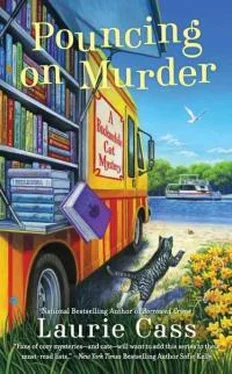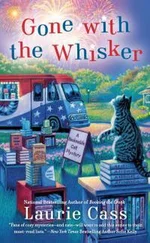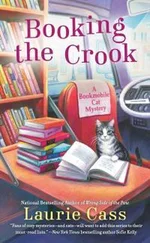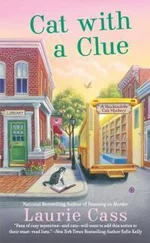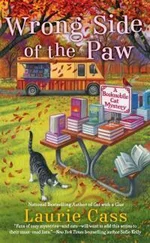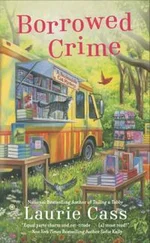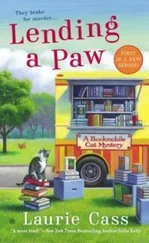I could have driven over to talk to Irene and Adam, but I didn’t want to have to see the disappointment in their faces when I told them I hadn’t learned anything new.
Which led me to a conclusion I should have reached far earlier—I needed to learn something new. And suddenly I knew exactly what to do.
• • •
I knocked on the door of the large lakeside home. It looked like a front door, but on lake houses it was hard to know for sure. Because if you had a house on a lake, surely you’d make the prettiest side of the house face the water, and wouldn’t that be the front? Then again, shouldn’t the front door be the door where people first entered the house? It was a conundrum, and once again I patted myself on the back for not having the financial resources to live on a lake. Just think of all the problems I’d avoided.
The door was opened by a middle-aged woman and I mentally breathed a sigh of relief. At least I wouldn’t have to explain myself to Cole Duvall.
“Hello,” the woman said. “Can I help you?” She wasn’t tall, exactly, but appeared tall at first glance because she was solidly built from head to toe. Her brown hair was pulled back into a soft bun and her face, while not one of beauty, was full of a kindly intelligence.
“Hi,” I said. “Sorry to bother you, but are you Mrs. Duvall?” When she nodded, I introduced myself. “I was a friend of Henry Gill’s and—”
“That poor man.” Her face crumpled into sadness. “Oh, bugger. I’m going to start crying.” She pushed the door open. “Come on in and keep me from bawling my eyes out. I just go to pieces every time I think about it.”
By the time we were settled on wicker furniture in a glassed-in porch, I’d learned Mrs. Duvall’s name was Larabeth, that she was Cole’s second wife, and that he was her first husband. “I was just too busy for years working on the stores. Somehow I got to forty before I once thought about getting married. When I looked around, there was Cole,” she said, smiling.
I also learned that Cole hadn’t wanted children—“He and his first wife had a boy and a girl and he said he didn’t want to do that all over again”—and finally that Larabeth was the sole heir to the Dwyer grocery store chain.
“Really?” I almost squeaked. “I love those stores!”
And I did. Dwyer was the name of an extremely successful regional chain of specialty food stores. What made the Dwyer stores different was that each one was customized for its location, carrying not only local produce, but as many local items as possible, from wine to cheese to pasta. And though the main decor of all the stores was similar, each store had personalized wall murals that captured the local flavor. “Are you going to open one in Chilson?”
Larabeth sighed. “Don’t I wish? The town isn’t big enough to support one of our stores, not without taking too much business away from what’s already in place.”
A businesswoman with a conscience? I was so busy putting her into my mental Friend category that my slide into the next phase of the conversation was awkward. “Yes, it’s very sad that Henry’s gone,” I said, “and that’s partly why I’m here. Did you know that there was someone else out with Henry that day?”
“I hadn’t heard that.” She frowned. “Was he hurt, too?”
“Not directly.” I explained about Adam and the heart attack and about the fictional man who’d called 911 on Adam’s cell phone and helped direct the EMT crew to Adam. The story was getting better every time I told it, and I was sorry it wasn’t true.
“Anyway, Adam never learned the name of the man who helped him and I said I’d try to find out. I don’t suppose it was your husband, was it? Adam would love to thank him.”
Larabeth was shaking her head. “Couldn’t have been. Cole flew out West skiing that weekend.” She sighed. “I would have liked to go with him, but there was a grand reopening at the Lansing store and I never miss those.”
We chatted awhile longer, during which she became an ever firmer friend by smiling when I told her that I drove the bookmobile, and when the sun started dropping into the water, I headed home, thanking her for her time.
All the way back to Chilson, I thought about times and dates, about marriages and money.
But I also thought about wooden boats.
Chapter 17
The next morning I did my best to play catch-up on the tasks that had gone undone while I was out the day before, so it was nearly noon before I remembered to act upon my brilliant middle-of-the night idea. I reached for the phone, hoping it wasn’t too late.
“Is this Pam Fazio?” I asked. “The world-famous graphic designer?”
“Shh,” she hushed. “Didn’t I tell you to keep that a deep, dark secret?”
“Haven’t told a soul,” I said. “And if you want, I’ll make a pinky swear on it at lunch. Round Table in half an hour? I’ll buy, because I want to ask you something.”
“Not Shomin’s Deli?” she asked.
“I haven’t seen Sabrina in a while,” I said. “Don’t want her to get too lonely.”
Pam laughed and said she’d see me soon.
And half an hour later, I was sitting at one of the diner’s back tables when Pam came in. I waved her over and she made the trek across the room, fake-panting as she dropped into a chair. “Whew! Wasn’t sure I was going to make it all the way.” She drew her hand across a brow that wasn’t the least bit damp. “If this is your way of getting me to exercise, it’s not going to work, because I’ll need dessert to get me back to the store.”
“I’d prefer,” I said quietly, “that this conversation not be overheard.”
“Oh-ho!” Pam, suddenly perky, sat up and plopped her elbows on the table. “An excellent opener. What’s the topic of the hour?”
“Felix Stanton,” I said.
Pam’s perkiness slid away. “Felix. Ah. Well.”
“And do you girls need menus today?” Sabrina put down glasses of ice water and took out her pad. “I didn’t think so. Ham sandwich with a side salad and raspberry vinaigrette for you,” she said, nodding at Pam, “and a burger with everything but and an order of fries for the bookmobile lady. Anything other than water? Right. I’ll put this up and you’ll have your food in a jiffy.”
She walked over to where her husband, Bill, was sitting while tapping away at his computer, planted a kiss on the top of his head, and headed off to the kitchen.
I turned back to Pam. “When we were at Shomin’s last week and Felix was being all cranky, you said you’d known him for a while. That he gets like that every so often.” I fiddled with one of the straws Sabrina had left. “But you’ve only been in Chilson a year and Felix . . . well, I guess I don’t know if he’s a native, but he’s had that real estate and development business for years.” I tipped my head questioningly.
Pam grinned. “Should have figured you’d pick up on that.” She ripped open her straw and jammed it into her ice water. “Felix and I grew up together, down in Ohio. It’s because of him that I heard of Chilson in the first place. His parents came up here every summer when he was a kid, and as soon as he was old enough to be on his own, he moved north.”
It was a familiar story. A lot like mine, actually. “So the two of you are friends,” I said.
“We have a lot of history—no, not that kind of history,” she said, rolling her eyes at my smirk. “We were next-door neighbors from kindergarten through high school. He was another brother, practically. Just one that didn’t live in the same house.”
“A lot of shared history, then,” I said, “and a lot of shared loyalty.”
“Not so much of that second one.” She looked at the ceiling for a moment, then back at me. “Felix isn’t the kind of guy who inspires loyalty, somehow. I like him, even love him in a distant cousin sort of way, but . . . well, let’s just say that if I wanted some help moving across town, he’s not who I’d call.”
Читать дальше
